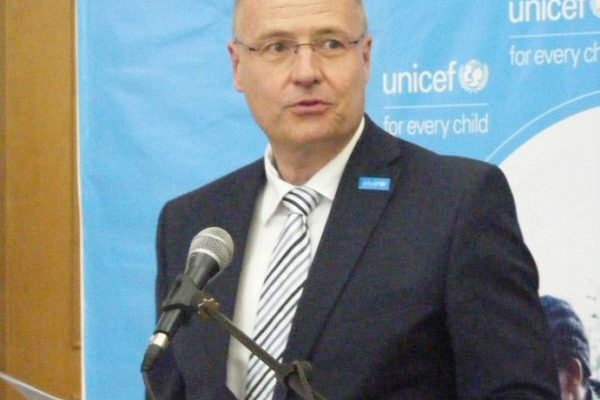
United Nations Children Fund (UNICEF) has urged parents and guardians to encourage primary school learners to participate in lessons on radio.
Malawi’s UNICEF Representative Rudolf Schwenk made the remarks during the launch of an Emergency Radio Programme on Wednesday at Mount Soche Hotel in Blantyre.
Schools and colleges were closed on 23rd March, 2020, with a view to protect learners, teachers and parents from contracting Coronavirus.
The closure of the schools and the colleges has disrupted the normal delivery of education to our learners and students. As a way of mitigating the situation, government launched the emergency programme.
In his remarks during the launch, Schwenk said radio education program has a potential of serving 6 million children enrolled in primary school across the country, with focused lessons in literacy, numeracy and science through Malawi Broadcasting Corporation Radio 1 and 2.
He added that UNICEF and its partners are constantly striving to find new and innovative solutions which include preventing the most vulnerable children from failing behind and supporting government to scale- up home learning options.
“I encourage all parents and the community at large to support their children and help them participate in these lessons and make full utilisation of this opportunity, we look forward to children returning to school as soon as possible,” he said.
On his part, Minister of Education, Science and Technology William Susuwele Banda said in the National COVID-19 Preparedness and Response Plan, under the Education Cluster, the Ministry of Education, Science and Technology is leading the cluster while UNICEF and Save the Children are co-leads.
Banda explained the Education Cluster is there to ensure that teaching and learning continues through innovative solutions and creating an enabling environment in communities with special attention given to orphans and vulnerable children in the school-going age groups.
He added that the ministry is also working on other interventions to reach out to learners through Television and non-digital printed materials which is expected to be ready in the coming few weeks.
The Radio Programme is for standard 1-8 and the focus is on literacy, numeracy and science while for secondary education there is already online learning for Junior Secondary (Form 1 and 2).














